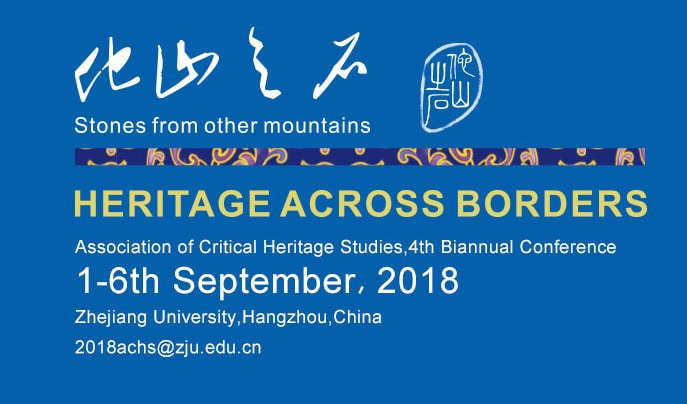
SESSION 073 Heritage Politics: Challenges for the 21st Century’s Heritage Management (REGULAR SESSION)
In this session at the ACHS, 4th Biannual Conference in Hangzhou, China, we are inviting researchers to explore future challenges for the heritage management.
The Cultural Heritage Management (CHM) finds itself in the complex fusion of actors and expectations.
It relates both to how and what to address concerning safeguarding valuable heritage from the past, as well as understanding heritage in view of the ways we are living today, and to see heritage as a potential – and responsibility – we pass on to future generations.
New global trends with the flux of economy (e.g. tourism, heritage as commodity), human resources and cultures across borders, as well as new technological trends, are all factors affecting the way to practice heritage management around the world.
Ideological and political strains (e.g. regionalism, nationalism, and internationalism) are influencing heritage strongly.
New partnerships between institutional bodies and a diverse public – authoritarian controlling mechanisms and democratized heritage practices – are also factors that affect the heritage management.
In this session we address papers that explore for instance societal trends, geopolitical challenges, scenarios, visions and utopias affecting future heritage management. The session aims to address questions such as:
• How to find the new pathways for future heritage management in the context of present needs?
• What constitutes heritage politics on the basis of concepts such as “for the greater good” or “for future generations”?
• Do future challenges require changes of the institutional management practices and organizations?
• Do we need new conceptual frameworks (legislations, policy etc.) for understanding future challenges?
• How can the National CHM learn from each other in order to meet future demands with the intent of being cultural productive and social relevant in their own country and in diverse local settings?
• To what extents do transnational or international conventions (as political utopias) have relevance for future heritage practices?
We invite researchers across disciplines and geographic affiliation to illuminate future challenges for cultural heritage management, both about specific continental and national challenges and overarching issues in a world perspective.

